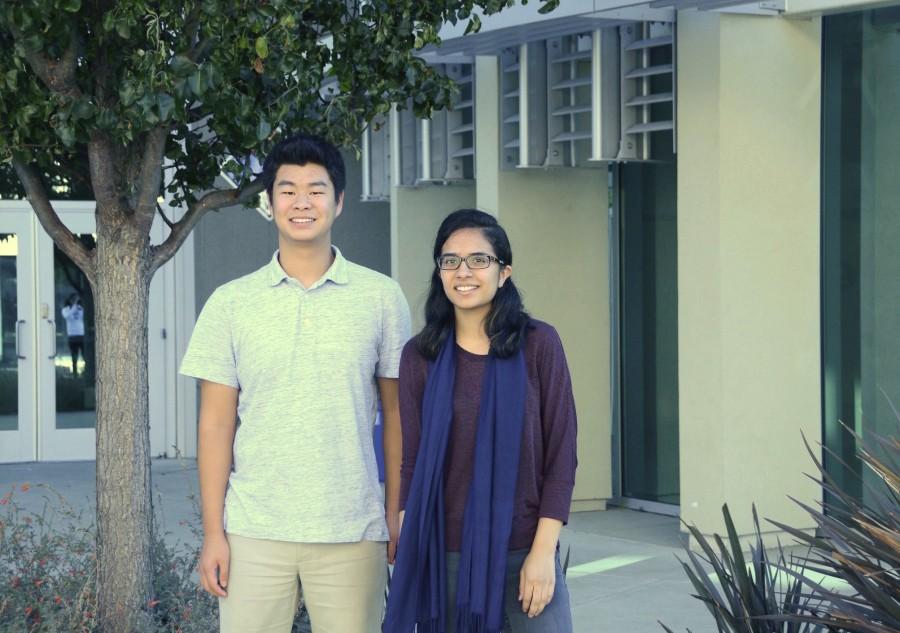Siemens Competition
January 29, 2016
Juniors David Zhu and Evani Radiya-Dixit were named reigonal finalists in the 2015 Siemens Competition. 11 other students were named semifinalists.
The Siemens Foundation announced 11 semifinalists from Harker for the Siemens Competition in Math, Science and Technology last October, of which two later placed fifth as national finalists in Washington D.C.
Each year, the foundation selects 300 semifinalist projects from around 1400 submissions, of which 60 are selected as regional finalist projects. From those 60, 12 projects are selected to compete in the national competition.
The semifinalists for the 2015 competition are seniors Vivek Bharadwaj, Rishabh Chandra, Anthony Luo and Jonathan Ma, juniors Rishab Gargeya, Shasvat Jawahar, Alexander Mo, Venkat Sankar, Manan Shah, Arjun Subramaniam, Evani Radiya-Dixit and David Zhu, and sophomore Brandon Mo.
Evani and David were selected as regional finalists, and after a 12 minute oral presentation and a 15 minute Q&A session with judges, moved on to the next stage of the competition as regional finalists. At the national stage, Evani and David placed fifth, receiving a $20,000 scholarship from the Siemens Foundation.
David and Evani’s research project was titled “Automated Classification of Benign and Malignant Proliferative Breast Cancer Lesions,” and used a machine-learning algorithm to detect early cancer cells.
“For our project we developed a computer model to discriminate between benign and malignant breast tumors,” Evani said. “So we basically developed a machine-learning algorithm that inputs raw tissue images and then outputs whether the specific sample is benign or malignant.”
David advised students interested in pursuing research to follow their interests and to not be afraid of stepping out of their comfort zone.
“I think the best thing to do is to follow your passion and to take any opportunity that presents itself,” David said. “If you really do what you enjoy doing and you are fine with going a little out of your comfort zone, and you grab that opportunity when it presents itself, I think you are already starting to become a great scientist.”
